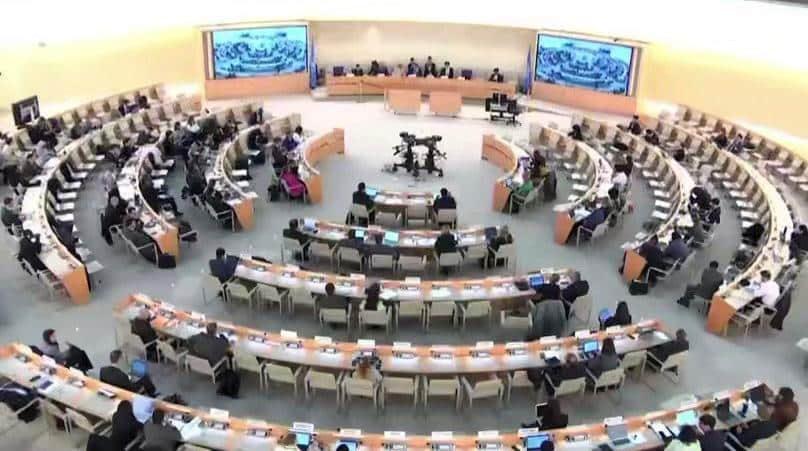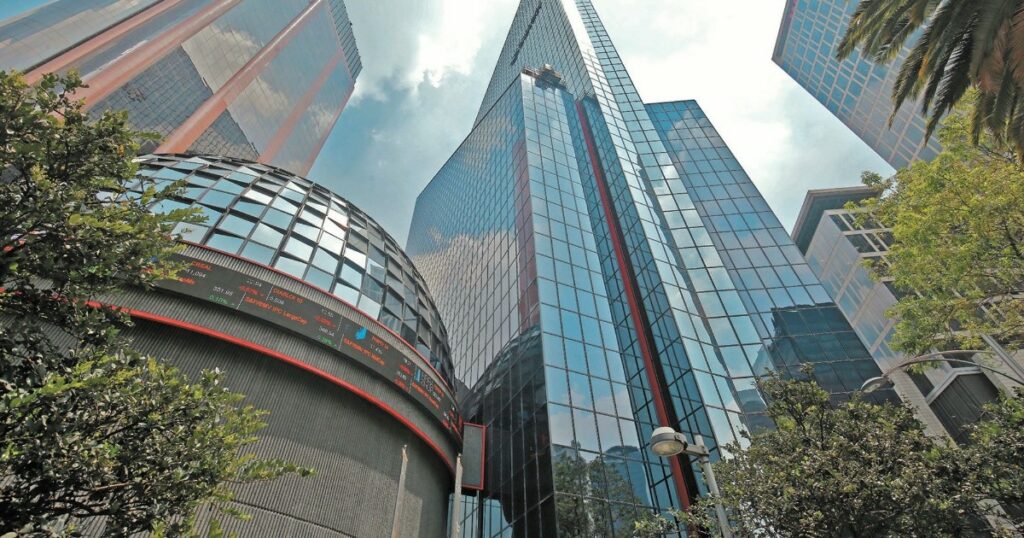The human rights situation in Nicaragua has continued to erode in the first months of 2023, highlighted this Friday the Office of the United Nations High Commissioner for Human Rights (Oacnudh), which asked the Government of Daniel Ortega to end practices such as he stripping of Nicaraguan nationality to opposing people.
In an updated report on the situation in Nicaragua, presented by the OHCHR Deputy Secretary General, Ilze Brands Kehris, denounced this arbitrary measure, applied to 317 people, including 222 political prisoners who were released on February 9, Bishop from Matagalpa Rolando Álvarez and 94 Nicaraguan personalities.
“The Office has received information that their birth certificates are being removed from the Nicaraguan civil registry,” Brands denounced.
He also emphasized that at least 37 people continue to be arbitrarily deprived of their liberty in the context of the sociopolitical crisis that Nicaragua is experiencing, the case highlighted. Bishop Álvarez, sentenced to 26 years and four months in prison for having been found guilty of treason and refusing to be banished.
That sentence was handed down “without a prior trial,” said Brands, who called for the unconditional release of Álvarez and the other 36 arbitrarily detained.
In January and February, he added, sentences of up to ten years in prison were handed down against 30 people who dared to criticize the government, including activists, journalists and priests in trials without due process, often in closed-door hearings and at that the defendants and their lawyers were denied access.
Many of them were not allowed to have prior knowledge of the charges for which they were being tried, which made it difficult for them to appeal the sentence, Brands denounced.
These are “arbitrary and disproportionate measures, some retroactively, that violate Nicaragua’s international commitments in the area of human rights and are intended to intimidate,” said the head of the United Nations.
Persecution against NGOs
Brands also recalled the systematic persecution from the Nicaraguan authorities to civil society organizations, with more than 3,200 of them stripped of legal personality since 2018 and their facilities confiscated.
The Office of the United Nations High Commissioner for Human Rights (@OHCHR) calls on the State of Nicaragua to unconditionally release the 37 people who are still arbitrarily deprived of their liberty.#HRC52 pic.twitter.com/smngb4eZ1X
— UN Human Rights Council ?#HRC52 (@UN_HRC) March 3, 2023
Another sign of the deterioration of fundamental freedoms, he denounced, is the restriction of many rights to people who do not have the ruling party’s militant ID, which deprives them of access to public positions, higher education and, in extreme cases, to medical attention.
“In one case, a person was denied surgery as long as they did not register with the party,” Brands asserted before the Human Rights Council, where he also denounced continuous violations against the rights of indigenous peoples in Nicaragua.
He deterioration of freedoms in Nicaraguahe stated, “it is evident in the increase in the number of people leaving the country” which, according to the UN Agency for Refugees, is already more than 260,000, many of them fleeing to Costa Rica and the United States.
“In light of the persistent sociopolitical crisis, which is now entering its sixth year, we urge this Council to closely monitor the situation in the country and promote all measures leading to reversing it,” concluded Brands.
In the turn of reply, the Attorney General of Nicaragua, Wendy Morales, expressed her “total rejection” of a report that “like others prepared by this body, it is prepared with partial, biased and subjective information, which only seeks to undermine our purpose of achieving plenitude, the common good and peace for our nation”.
The report, he opined, takes data “from groups that seek to manipulate the truth of the country by wanting to impose economic interests of imperialist nations.”
Expropriation of properties
Meanwhile, the representation of the European Union in the UN Human Rights Council denounced that the Nicaraguan authorities have continued the citizen pressure with the expropriation of property from people considered to be opposition members, a fact that, together with the stripping of their nationality, constitutes “a flagrant violation of international law.”
Along the same lines, the Canadian delegation, which spoke on behalf of 53 countries, stated that “nationality is a right that cannot be revoked without an appropriate legal process,” demanded the release of political prisoners and urged Nicaragua to open a “good faith dialogue” with the international community.
Similarly, the representations of human rights organizations demanded that the members of the Human Rights Council deploy all their diplomatic capacity to guarantee religious freedom and human rights in Nicaragua.
“In April my country (Nicaragua) will celebrate five years of systematic repression and violation of human rights by the State, which continue in complete impunity. In that time, ten arbitrary laws have been applied under the logic of jail, exile or cemetery, causing, among other things, the forced exile of more than half a million Nicaraguans and the situation continues to worsen,” said human rights defender Gonzalo Carrión on behalf of of the Collective 46/2.
The director of Urnas Abiertas, Olga Valle, stated during her speech that “Nicaraguan society has sought in the electoral process a way to start a democratic transition with justice and without impunity.” However, the electoral processes of 2021 and 2022 were characterized “by serious violations of civil and political rights.” A situation that has led to “the erosion of the quality of life of Nicaraguans in all its dimensions, with high levels of impunity for violence against women and widespread corruption,” she stressed.
Crimes against humanity have been committed
The oral update from the High Commissioner’s office occurs one day after the Group of Experts on Human Rights on Nicaragua (GHREN), released its report in which it concludes that the Daniel Ortega regime and the authorities of at least seven State institutions, headed by the Police, committed crimes against humanity against Nicaraguans that were expressed in the April Rebellion of 2018.
Upon confirmation of crimes against humanity and extrajudicial executions that are upheld to date, the Group recommends that the international community initiate legal action against the individuals responsible for documented violations, abuses, and crimes in Nicaragua.
“The GHREN has reasonable grounds to believe that authorities at the highest level of the State structure, including President Daniel Ortega and Vice President Rosario Murillo, as well as senior commanders of the National Police headquarters, participated in the commission of the crimes. documented in the report”, maintains the group of experts, created a year ago by a resolution of the Human Rights Council of the United Nations Organization, to investigate the abuses committed in Nicaragua since 2018.

















